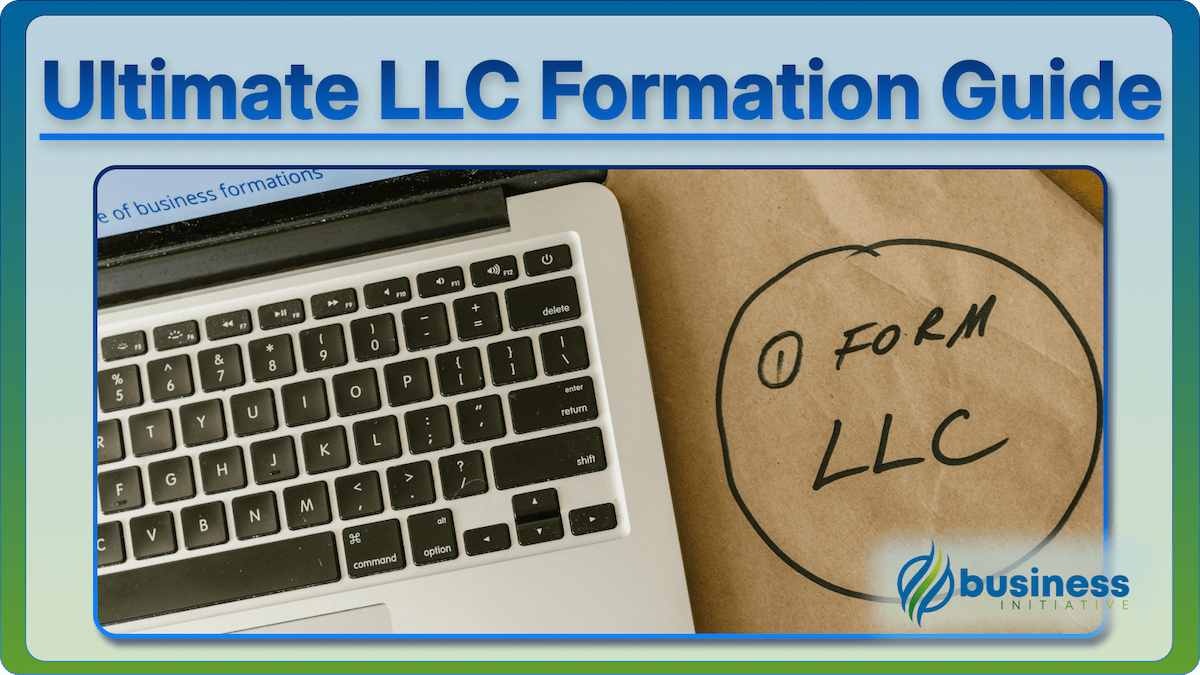You’ve formed your business.
But formation is just the beginning. You have ongoing compliance requirements. Annual reports. Fees. Filings. Deadlines.
Each entity type has different requirements.
LLCs. Corporations. Partnerships. Each has unique obligations. Understanding them prevents compliance failures.
This guide compares them all.
LLC requirements. Corporation requirements. Partnership requirements. Side-by-side comparison. What you need to do. When you need to do it.
Read this. Understand your obligations. Stay compliant.
 Key Takeaways
Key Takeaways
- LLCs, Corporations, and Partnerships each have different ongoing compliance requirements including annual reports, fees, and state-specific obligations
- Most states require annual reports or statements for LLCs and Corporations, typically due around the anniversary of formation
- Corporations generally have more formal compliance requirements including board meetings, meeting minutes, and shareholder records
- Partnerships typically have fewer formal compliance requirements but still need to maintain business records and meet tax obligations
- All entity types must maintain registered agent services, keep business records, and meet state-specific requirements to maintain good standing
 Table of Contents
Table of Contents

Why Compliance Matters
Compliance maintains your business’s legal status.
What happens if you don’t comply:
- Loss of good standing
- Penalties and fines
- Legal problems
- Business disruption
- Reputation damage
What happens if you comply:
- Maintain good standing
- Avoid penalties
- Protect your business
- Build credibility
- Peace of mind
The solution: Understand your requirements. Track deadlines. File on time. Stay compliant.
LLC Compliance Requirements
LLCs have specific ongoing compliance requirements.
Annual Reports
What it is: A yearly filing that updates your state on your business information.
When it’s due: Typically around the anniversary of your formation date. Some states require biennial (every two years) reports.
What to include:
- Current business address
- Registered agent information
- Member information (in some states)
- Business activities
Why it matters: Missing annual reports results in loss of good standing.
Franchise Tax
What it is: A tax some states charge for the privilege of doing business in that state.
When it’s due: Varies by state. Some states charge annually, others biennially.
What to pay: Amount varies by state. Some states base it on revenue or assets.
Why it matters: Not all states have franchise tax, but those that do require payment to maintain good standing.
Registered Agent Service
What it is: A person or business that receives legal documents on your behalf.
Requirements:
- Must have physical address in state
- Must be available during business hours
- Must forward documents promptly
Why it matters: Required in all states. Missing documents can result in default judgments.
Business Records
What to maintain:
- Formation documents
- Operating Agreement
- Member information
- Financial records
- Tax records
Why it matters: Proper records are required by law and protect your business.
State-Specific Requirements
What varies by state:
- Annual report deadlines
- Franchise tax requirements
- Publication requirements (some states)
- Industry-specific compliance
Why it matters: Each state has unique requirements. Know yours.
Pro tip: LLCs generally have fewer formal requirements than corporations, but still need to maintain compliance. See our first-year compliance calendar for detailed deadlines.

Corporation Compliance Requirements
Corporations have more formal compliance requirements.
Annual Reports
What it is: A yearly filing that updates your state on your business information.
When it’s due: Typically around the anniversary of your formation date. Some states require biennial reports.
What to include:
- Current business address
- Registered agent information
- Officer and director information
- Shareholder information (in some states)
Why it matters: Missing annual reports results in loss of good standing.
Franchise Tax
What it is: A tax some states charge for the privilege of doing business in that state.
When it’s due: Varies by state. Some states charge annually, others biennially.
What to pay: Amount varies by state. Some states base it on revenue, assets, or number of shares.
Why it matters: Not all states have franchise tax, but those that do require payment to maintain good standing.
Board Meetings
What it is: Regular meetings of the board of directors.
Requirements:
- Must hold annual meetings (at minimum)
- Must keep meeting minutes
- Must document decisions
- Must follow bylaws
Why it matters: Required by law for corporations. Failure to hold meetings can pierce the corporate veil.
Meeting Minutes
What it is: Written records of board and shareholder meetings.
Requirements:
- Must document all meetings
- Must record decisions and votes
- Must be maintained as business records
- Must be accessible to shareholders
Why it matters: Required by law. Protects corporate veil and provides legal documentation.
Shareholder Records
What to maintain:
- Shareholder list
- Share certificates
- Transfer records
- Ownership percentages
Why it matters: Required by law. Essential for corporate governance.
Registered Agent Service
What it is: A person or business that receives legal documents on your behalf.
Requirements:
- Must have physical address in state
- Must be available during business hours
- Must forward documents promptly
Why it matters: Required in all states. Missing documents can result in default judgments.
Business Records
What to maintain:
- Formation documents
- Bylaws
- Meeting minutes
- Shareholder records
- Financial records
- Tax records
Why it matters: Proper records are required by law and protect your business.
Pro tip: Corporations have more formal requirements than LLCs. Regular board meetings and proper record-keeping are essential. See our compliance dashboard guide for tracking systems.
Partnership Compliance Requirements
Partnerships typically have fewer formal compliance requirements.
Business Records
What to maintain:
- Partnership agreement
- Partner information
- Financial records
- Tax records
Why it matters: Proper records are required by law and protect your business.
Tax Compliance
What to track:
- Income and expenses
- Partner distributions
- Business deductions
- State tax obligations
Why it matters: Partnerships are pass-through entities. Tax compliance is critical.
State-Specific Requirements
What varies by state:
- Business license requirements
- Registration requirements (for some partnership types)
- Industry-specific compliance
Why it matters: Some states require partnerships to register. Know your state’s requirements.
Registered Agent Service
What it is: A person or business that receives legal documents on your behalf.
Requirements:
- May be required depending on state and partnership type
- Must have physical address in state (if required)
- Must be available during business hours (if required)
Why it matters: Some partnership types may require registered agent services. Check your state requirements.
Pro tip: Partnerships generally have the fewest formal compliance requirements, but still need to maintain proper records and meet tax obligations.

Side-by-Side Comparison
Here’s how the requirements compare:
Annual Reports
LLC: Required in most states. Typically due annually or biennially.
Corporation: Required in most states. Typically due annually or biennially.
Partnership: Generally not required, but some partnership types may need registration updates.
Franchise Tax
LLC: Required in some states. Amount varies by state.
Corporation: Required in some states. Amount varies by state.
Partnership: Generally not required, but check state-specific requirements.
Board Meetings
LLC: Not required. LLCs can be member-managed or manager-managed.
Corporation: Required. Must hold annual meetings at minimum.
Partnership: Not required. Partnerships are managed by partners.
Meeting Minutes
LLC: Not required, but recommended for important decisions.
Corporation: Required. Must document all board and shareholder meetings.
Partnership: Not required, but recommended for important decisions.
Registered Agent
LLC: Required in all states.
Corporation: Required in all states.
Partnership: May be required depending on state and partnership type.
Business Records
LLC: Required. Must maintain formation documents, operating agreement, and financial records.
Corporation: Required. Must maintain formation documents, bylaws, meeting minutes, and shareholder records.
Partnership: Required. Must maintain partnership agreement and financial records.
Pro tip: Understanding these differences helps you choose the right entity type and plan for ongoing compliance.
Common Requirements
All entity types share some common requirements.
Business Records
What to maintain:
- Formation documents
- Governing documents (Operating Agreement, Bylaws, Partnership Agreement)
- Financial records
- Tax records
Why it matters: Required by law. Essential for legal protection and tax compliance.
Tax Compliance
What to track:
- Income and expenses
- Business deductions
- State tax obligations
- Federal tax obligations
Why it matters: Tax compliance is mandatory for all businesses.
Business Licenses
What to maintain:
- General business licenses
- Industry-specific licenses
- Professional licenses (if applicable)
- Local permits
Why it matters: Operating without required licenses can result in fines and shutdowns.
State-Specific Requirements
What varies by state:
- Annual report deadlines
- Franchise tax requirements
- Publication requirements
- Industry-specific compliance
Why it matters: Each state has unique requirements. Know yours.
Pro tip: All businesses must maintain proper records and meet tax obligations regardless of entity type. See our first-year compliance calendar for detailed requirements.

State-Specific Differences
Requirements vary significantly by state.
Annual Report Deadlines
What varies:
- Due dates (some states use formation anniversary, others use calendar year)
- Frequency (annual vs. biennial)
- Required information
Why it matters: Missing deadlines results in loss of good standing.
Franchise Tax
What varies:
- Which states charge it
- Calculation methods
- Payment deadlines
Why it matters: Not all states have franchise tax. Those that do have different requirements.
Publication Requirements
What varies:
- Some states require publication of formation notice
- Publication must be in specific newspapers
- Must file proof of publication
Why it matters: Only some states require publication. Know if yours does.
Industry-Specific Compliance
What varies:
- Professional licensing requirements
- Industry-specific regulations
- Special compliance obligations
Why it matters: Some industries have additional compliance requirements.
Pro tip: State requirements vary significantly. Check your state’s specific requirements. See our state-by-state checklist for guidance.
Your Next Steps
Understand your requirements. Track deadlines. Stay compliant.
This Week:
- Review this guide
- Identify your entity type’s specific requirements
- Check your state’s requirements
- Set up compliance tracking
This Month:
- Create compliance calendar
- Set reminders for all deadlines
- Gather required information
- File any upcoming reports
Going Forward:
- Review compliance calendar monthly
- File reports on time
- Maintain business records
- Stay in good standing
Need help? Check out our first-year compliance calendar for detailed deadlines, our compliance dashboard guide for tracking systems, and our compliance failures guide for avoiding problems.
Stay informed about business strategies and tools by following us on X (Twitter) and signing up for The Initiative Newsletter.
FAQs - Frequently Asked Questions About Formation Compliance by Entity Type: LLC vs. Corporation vs. Partnership Require

What ongoing compliance requirements do LLCs have after formation?
LLCs must file annual reports (or biennial in some states), pay franchise taxes where applicable, maintain a registered agent, keep business records including the operating agreement, and meet state-specific requirements.
Learn More...
Annual reports update the state on your LLC's current business address, registered agent information, and member details. They're typically due around your formation anniversary date, and missing them results in loss of good standing.
Franchise taxes apply in some states and vary in amount and calculation method. LLCs must also maintain a registered agent with a physical address in the state, keep formation documents and financial records organized, and watch for state-specific requirements like publication obligations.
How are corporation compliance requirements different from LLC requirements?
Corporations have all the same requirements as LLCs plus mandatory board meetings, formal meeting minutes, and shareholder record-keeping—making them significantly more compliance-heavy.
Learn More...
Like LLCs, corporations must file annual reports, pay franchise taxes where applicable, maintain registered agents, and keep business records. But corporations add formal governance requirements that LLCs don't have.
Corporations must hold annual board meetings at minimum, document all meetings with formal minutes, maintain shareholder records including ownership percentages and share certificates, and follow their bylaws. Failure to maintain these corporate formalities can pierce the corporate veil, exposing shareholders to personal liability.
Do partnerships have compliance requirements like LLCs and corporations?
Partnerships generally have fewer formal requirements—no annual reports or board meetings—but must maintain a partnership agreement, keep financial records, meet tax obligations, and comply with any state registration requirements.
Learn More...
Partnerships are the least formally regulated entity type. They typically don't need to file annual reports or hold structured meetings, but they must maintain proper business records including the partnership agreement, financial statements, and tax documentation.
As pass-through entities, partnerships have critical tax compliance obligations including tracking income, expenses, and partner distributions. Some states require certain partnership types to register and may mandate a registered agent. Always check your specific state's requirements.
Which entity type—LLC, corporation, or partnership—has the simplest ongoing compliance?
Partnerships generally have the fewest formal requirements, followed by LLCs, with corporations having the most complex ongoing compliance including mandatory board meetings and meeting minutes.
Learn More...
Partnerships need mainly tax compliance and record-keeping. LLCs add annual reports, franchise taxes, and registered agent requirements but skip formal governance meetings. Corporations pile on board meetings, shareholder meetings, formal minutes, and detailed record-keeping.
However, simpler compliance doesn't always mean better. Corporations' formal governance requirements actually provide stronger legal protections. Choose your entity type based on your overall business needs—liability protection, tax treatment, and growth plans—not just compliance simplicity.
What happens if my business loses good standing due to missed compliance filings?
Losing good standing can result in penalties and fines, inability to enforce contracts, loss of business name protection, and potential administrative dissolution of your entity.
Learn More...
When you miss annual reports or franchise tax payments, your state can revoke your good standing status. This affects your ability to conduct business, open bank accounts, obtain financing, and may expose you to personal liability.
Continued non-compliance can lead to administrative dissolution, where the state formally terminates your entity. Reinstating a dissolved entity is more costly and complex than maintaining compliance in the first place. Track all deadlines and set up reminders well in advance.
Are annual report requirements the same across all states?
No—annual report deadlines, frequency, required information, and fees vary significantly by state, with some states using formation anniversary dates and others using calendar year deadlines.
Learn More...
Some states require annual filings while others accept biennial reports. Due dates can be tied to your formation anniversary, a fixed calendar date, or your fiscal year end. The information required also differs—some states want member or officer details while others need only basic business information.
Fees range widely from under $50 to several hundred dollars. Some states also have unique requirements like publication obligations for new formations. Always research your specific state's requirements and set up a compliance calendar customized to your deadlines.
Do all business entity types need a registered agent?
LLCs and corporations are required to have a registered agent in all states. Partnerships may need one depending on the partnership type and state requirements.
Learn More...
A registered agent is a person or service that receives legal documents—including lawsuits and government notices—on your behalf. For LLCs and corporations, this is a universal requirement across all 50 states.
The agent must have a physical address in the state (not a P.O. box) and be available during business hours. Partnerships should check their state's specific rules, as some partnership types like limited partnerships and LLPs are required to maintain a registered agent.
Sources & Additional Information
This guide provides general information about compliance requirements by entity type. Specific requirements and deadlines vary by state.
For detailed compliance deadlines, see our First-Year Compliance Calendar.
For compliance tracking systems, see our Compliance Dashboard Guide.
For state-specific requirements, see our State-by-State Checklist.


